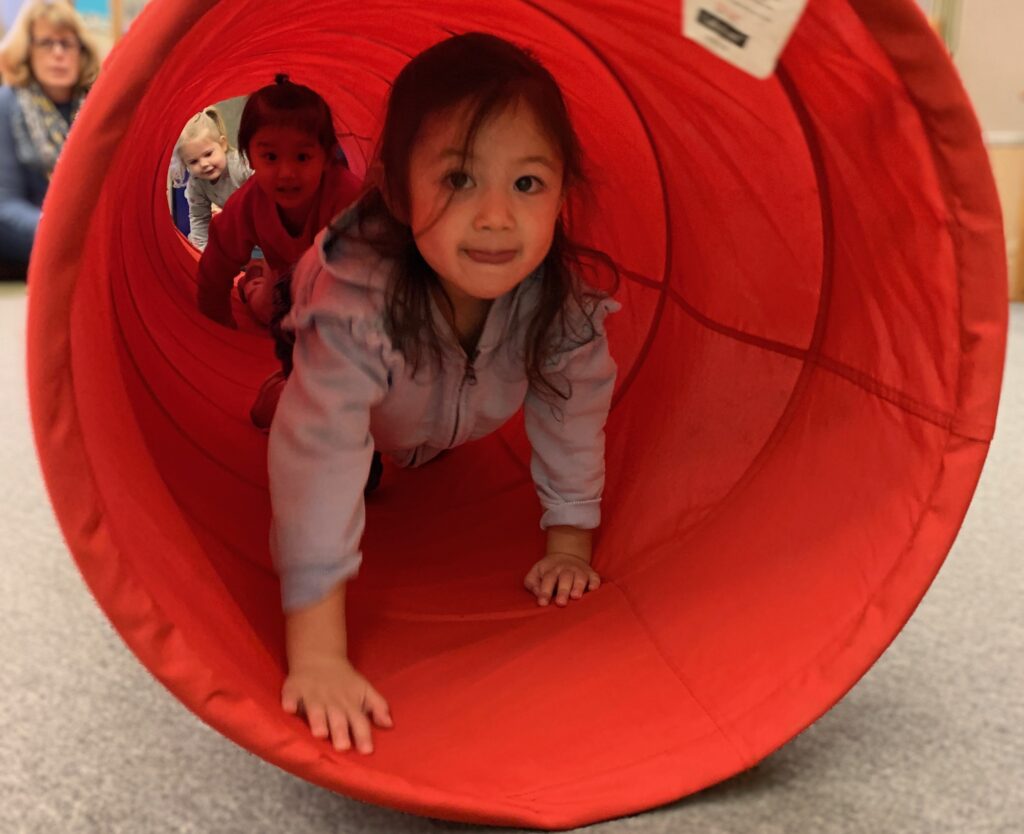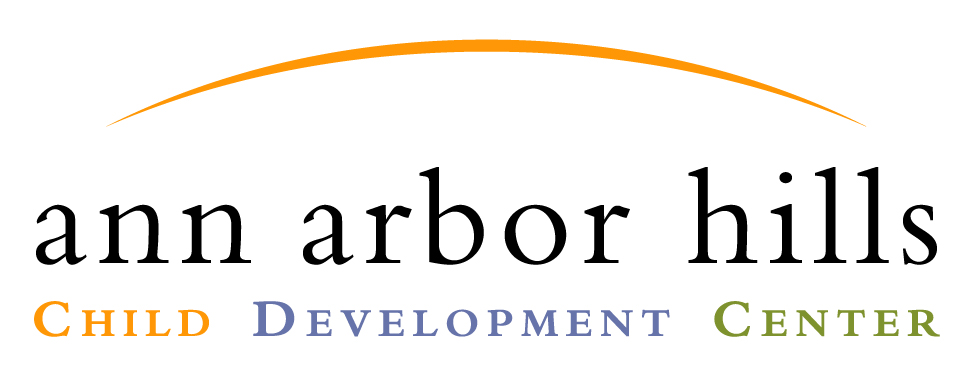Bear Room 2½ – 3 yrs
Mon/Wed 9:00 – 11:45am
Tues/Thurs 9:00 – 11:45am

Description
The goal of early childhood education is to ensure that children acquire the foundation of healthy development and learning necessary to achieve their full potential. Our curriculum is designed to foster achievement of long range goals in all domains – cognitive, social, emotional, and physical and addresses the development and learning of the whole child.
Curriculum content reflects the needs and interests of individual children within the group and incorporates a wide variety of learning experiences, materials and equipment. Instructional strategies accommodate a broad range of children’s individual differences and prior experience, maturation rates, styles of learning, needs and interests.
At the center of our curriculum and woven throughout classroom activities and themes is a focus on our “natural world.” Children have a natural curiosity to explore and make sense of their world. They find meaning and relevance to their conceptual and skill learning within the predictability and gradual nature of the process of the life cycle. From day to day, season to season everything comes full circle. There is a continuity in all – from the tiny pumpkin seed collected in classrooms in the fall, to the winter drying time, the spring planting, the summer “nurturing,” the fall harvest and the return to school of a new pumpkin.
Daily Program
Welcome
- Greetings
- Open Play Time
Morning meeting
- News of the day
- Letter of the week
- Theme of the month
- Project presentation
Discovery Time
- Project
- Sensory table
- Easel
- Playdough
- Puzzles
- Tunnel play
- Reading
- Toy area
- Housekeeping
Clean-Up/Handwashing
Snack
Music and Outdoor Play
Group Time
- Star of the Week
- Stories
- Dramatic Play
- Games
- Felt board stories
11:45 Sing Good-Bye!
Program Goals
- To develop relationships of mutual trust with adults and peers
- To enjoy playing alone and with other children
- To express ideas through language and symbolic representation in effective and varied ways
- To express interesting and creative ideas, problems, and questions
- To use initiative in pursuing curiosities
- To put ideas of objects into relationships, noting similarities and differences
- To demonstrate persistence in completing a task
- To have confidence in one’s ability to solve problems
- To begin to coordinate different points of view by cooperating and resolving conflicts
- To cope with fears, anxieties and frustrations constructively
- To become increasingly autonomous
- To build awareness of one’s body in space
- To coordinate fine and gross motor skills
